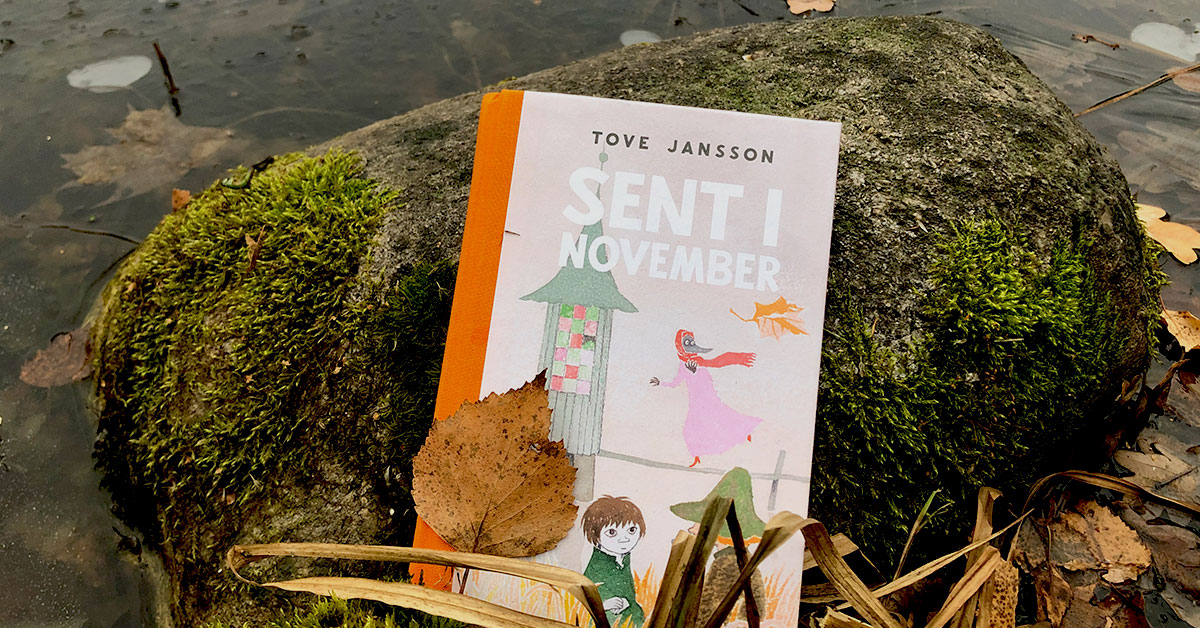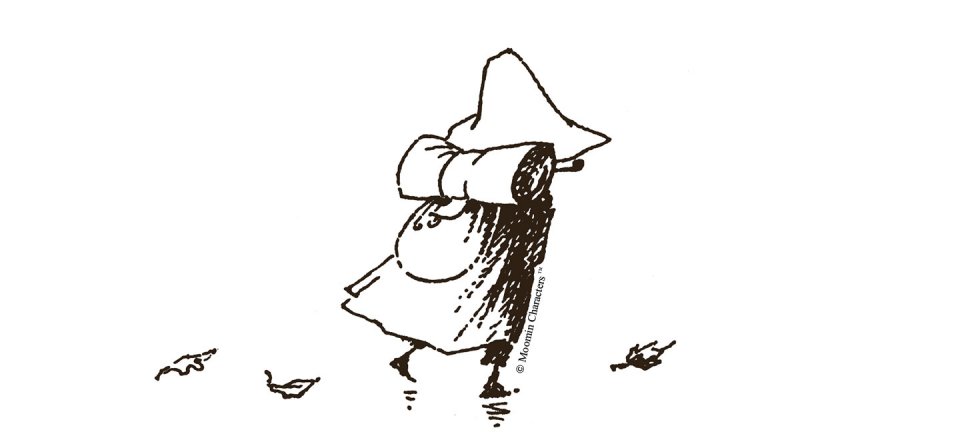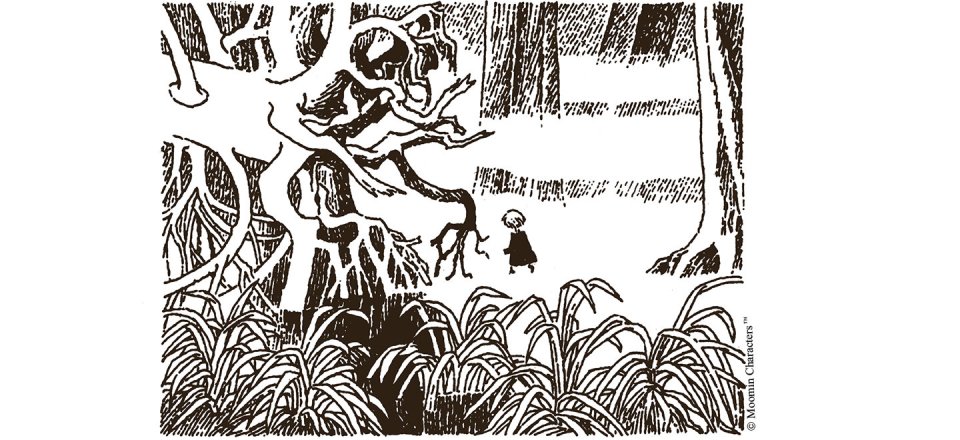"The quiet transition from autumn to winter is not a bad time at all", writes Tove Jansson in Moominvalley in November. That is something that we perhaps need to be reminded of right now, during the darkest time of the year, at least in the Northern hemisphere.
To celebrate autumn, this blog dives into some of Tove Jansson‘s enchanting autumn descriptions from the book Moominvalley in November (1970). It will be wet and a bit melancholic, but you will also learn how to keep warm and to appreciate that darkness has its perks as well.
Tove Jansson’s book Moominvalley in November shows the valley in a darker, foreign light. The Hemulen, who comes to visit Moominvalley, notices that something feels different.
“In some way or another he had always thought of Moominvalley in summer.”
“When the Hemulen got to the valley it was filled with a fine, drizzling rain. He walked straight into the garden and stopped, with a puzzled look on his face. Something wasn’t right. Everything was the same but somehow not the same. A withered leaf floated down and landed on his nose. How silly, the Hemulen exclaimed. It’s not summer at all. It’s autumn! In some way or another he had always thought of Moominvalley in summer.”
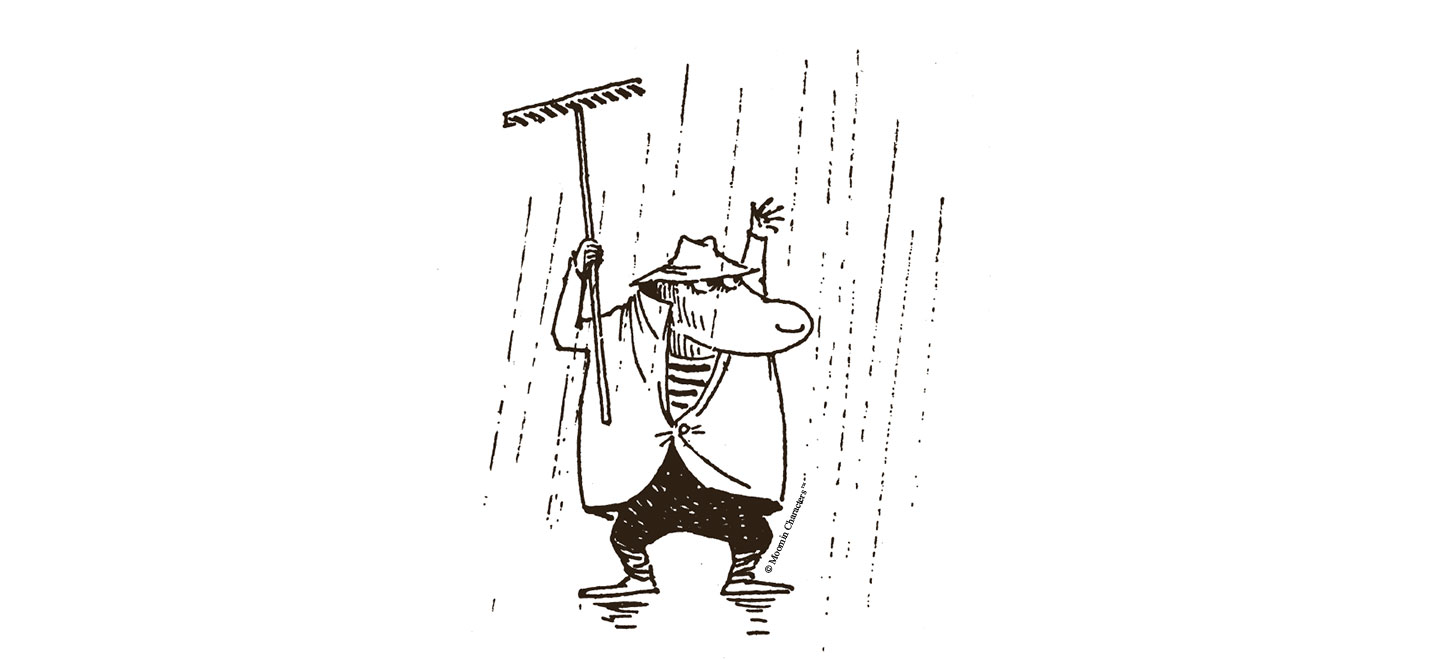
A Moomin book without the Moomins
Moominvalley in November is a quiet and melancholic book. The central characters of Moominvalley, the Moomin family, are absent – a very bold choice for a writer, who was at the height of her popularity in 1970, when the book was published.
The whole world was craving for more Moomin, and yet, this last novel became a Moomin book devoid of Moomins. Instead, Tove Jansson let the values of the Moomin family be adapted by other creatures left in Moominvalley, who are trying to live as the family used to. It is a beautiful goodbye, one that inspires hope – as a reader, you don’t really know wether the family has left the valley for good or if they’re going to return.
As the story shows, Moomins know how to say a proper goodbye, or at least they used to.
“Nothing about promises and longings and sad things”
“Snufkin went on with his search. He was hunting for Moomintroll’s goodbye letter, which had to be somewhere because a moomintroll never forgets to say good-bye. But all their hiding-places were empty. Moomintroll was the only one who knew how to write to a snufkin. Brief and to the point. Nothing about promises and longings and sad things. And a joke to finish up with.”
The hidden charm of darker days
For many, autumn is a rather tough time – its spirit is a difficult one to embrace.
“There are millions of tunes that are easy to find and there will always be new ones. But Snufkin let them alone, they were summer songs which would do for just anybody. He crept into his tent and into his sleeping-bag and pulled it over his head. The faint whisper of rain and running water was still there and it had the same tender note of solitude and perfection. But what did the rain mean to him as long as he couldn’t write a song about it?.”
Even though autumn in Moominvalley can be both dark and sinister, Tove Jansson also sees its great beauty.
“The forest was heavy with rain and the trees were absolutely motionless.”
“The forest was heavy with rain and the trees were absolutely motionless. Everything had withered and died, but right down on the ground the late autumn’s secret garden was growing with great vigour straight out of the mouldering earth, a strange vegetation of shiny puffed-up plants that had nothing at all to do with summer. The late blueberry sprigs were yellowish-green and the cranberries as dark as blood. Hidden lichens and mosses began to grow, and they grew like a big soft carpet until they took over the whole forest. There were strong new colours everywhere, and red rowan berries were shining all over the place. But the bracken had turned black.“
So, perhaps autumn isn’t so bad after all?
“The quiet transition from autumn to winter is not a bad time at all. It’s a time for protecting and securing things and for making sure you’ve got in as many supplies as you can. It’s nice to gather together everything you possess as close to you as possible, to store up your warmth and your thoughts and burrow yourself into a deep hole inside, a core of safety where you can defend what is important and precious and your very own. Then the cold and the storms and the darkness can do their worst. They can grope their way up the walls looking for a way in, but they won’t find one, everything is shut, and you sit inside, laughing in your warmth and your solitude, for you have had foresight.”
“He had that simple but rare ability to retain his own warmth”
Here is a little tip “à la Snufkin” for everyone who wants to avoid being cold and, instead, be able to laugh inside your warm cocoon on those dark autumn mornings, when it feels like the sun will never rise:
“Snufkin had determined that he would wake up early in order to have an hour or two to himself. His fire had burnt out long ago but he didn’t feel cold. He had that simple but rare ability to retain his own warmth, he gathered it all round him and lay very still and took care not to dream. The fog had brought complete silence with it, the valley was quite motionless.”
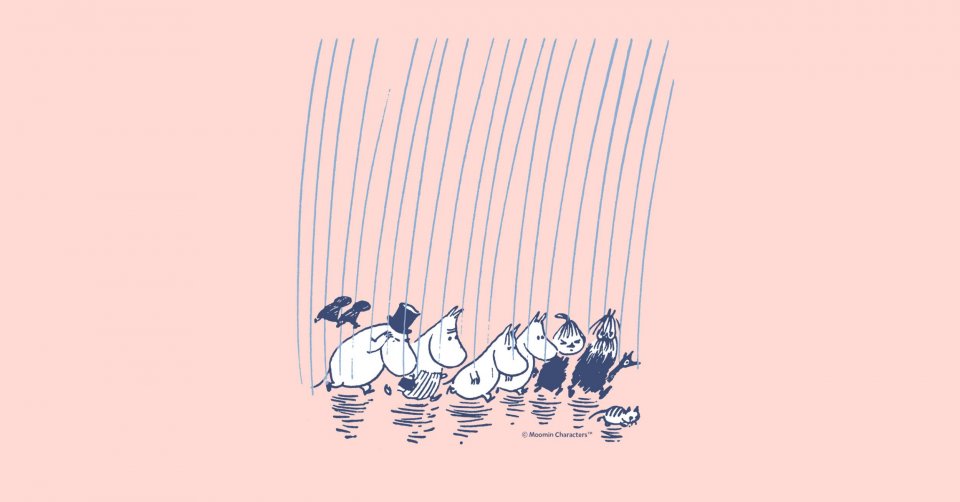
Enjoy rainy days like the Moomins
Here are eight rainy Moomin quotes to remind you of the simple joy and beauty of wet autumn days – with some Moomin rain gear!
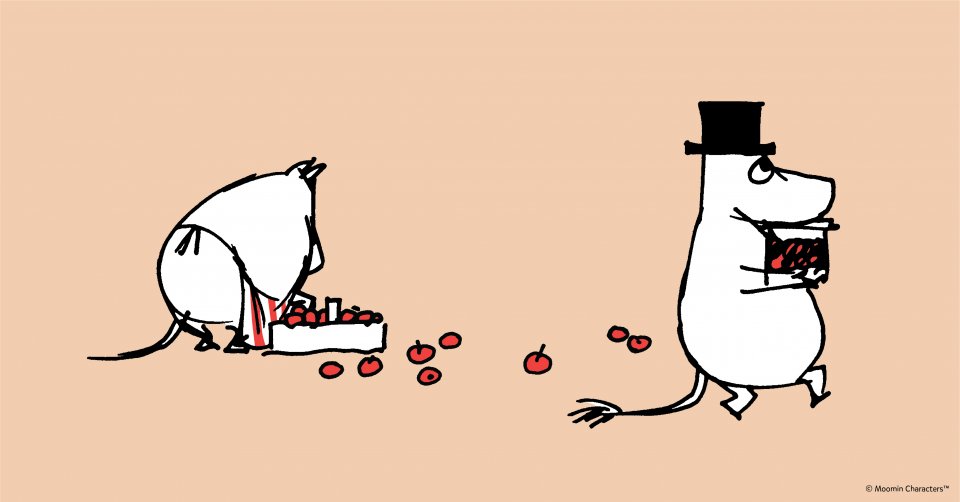
Autumn moods and quotes in the spirit of the Moomins
The Moomin books are full of very beautiful descriptions of seasons. Here are the top autumn quotes picked from Moomin books by Tove Jansson.
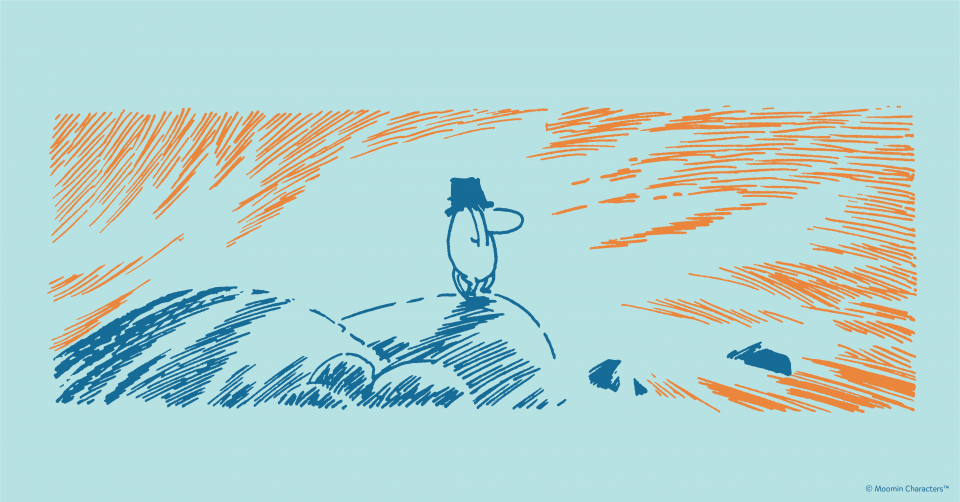
Moominpappa at Sea: A story about finding one’s true nature
The Moomin books are like love letters dedicated to nature. Respect shown towards the forces of nature is perhaps most visible in “Moominpappa at Sea”.
